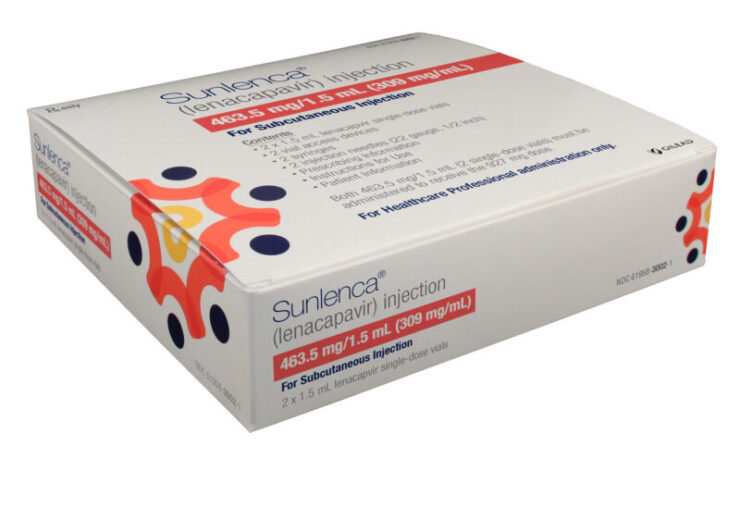The approval is backed by data from the CAPELLA phase 2/3 trial which assessed Sunlenca in combination with an optimised background regimen in multi-drug resistant HIV-1 patients

The packaging of Gilead’s Sunlenca. (Credit: Business Wire)
Gilead Sciences said that Sunlenca (lenacapavir) has been approved by the US Food and Drug Administration (FDA) in combination with other antiretrovirals(s) (ARV) for the treatment of human immunodeficiency virus type 1 (HIV-1) in heavily treatment-experienced (HTE) adults with multi-drug resistant (MDR) infection.
Sunlenca is claimed as the first and only approved capsid inhibitor-based HIV treatment option. Upon completion of the starting dose, the drug is to be administered as under-the-skin injections once every six months, for convenient dosing for patients, stated the FDA.
Gilead Sciences chairman and CEO Daniel O’Day said: “This news is an important milestone in the work to help end the HIV epidemic as Sunlenca is now the only FDA-approved twice-yearly treatment for people with multi-drug resistant HIV.
“Gilead scientists have developed a unique and potent antiretroviral medicine in Sunlenca with the potential for flexible dosing options.”
The regulator’s approval is backed by data from the CAPELLA phase 2/3 trial which assessed lenacapavir in combination with an optimised background regimen in patients having multi-drug resistant HIV-1.
The trial enrolled 72 patients who had high levels of the virus in their blood in spite of being on antiretroviral drugs. The patients were grouped into one of two study groups, one of which received either Sunlenca or placebo, while the other group received open-label Sunlenca.
Gilead Sciences said that the primary endpoint was the proportion of patients in the randomised group who showed a certain level of reduction in the virus during the initial 14 days compared to baseline.
As per the findings, 88% of patients who received lenacapavir saw at least a 0.5 log10 reduction in HIV-1 viral load by the end of 14 days as compared with 17% of those receiving placebo.
In a separate development, Gilead Sciences’ division Kite Pharma and Daiichi Sankyo secured approval for Yescarta (axicabtagene ciloleucel) from the Japan Ministry of Health, Labour and Welfare (MHLW) for the initial treatment of relapsed/refractory large b-cell lymphoma (LBCL).
The approval was supported by data from the ZUMA-7 study in which the patients with LBCL treated with Yescarta in second-line achieved a four-fold improvement in event-free survival of 8.3 months compared to two months for standard of care (SOC).
In addition, Yescarta showed a 2.5-fold increase in patients who were alive at two years without the progression of their disease or need for additional treatment, when compared to SOC.
